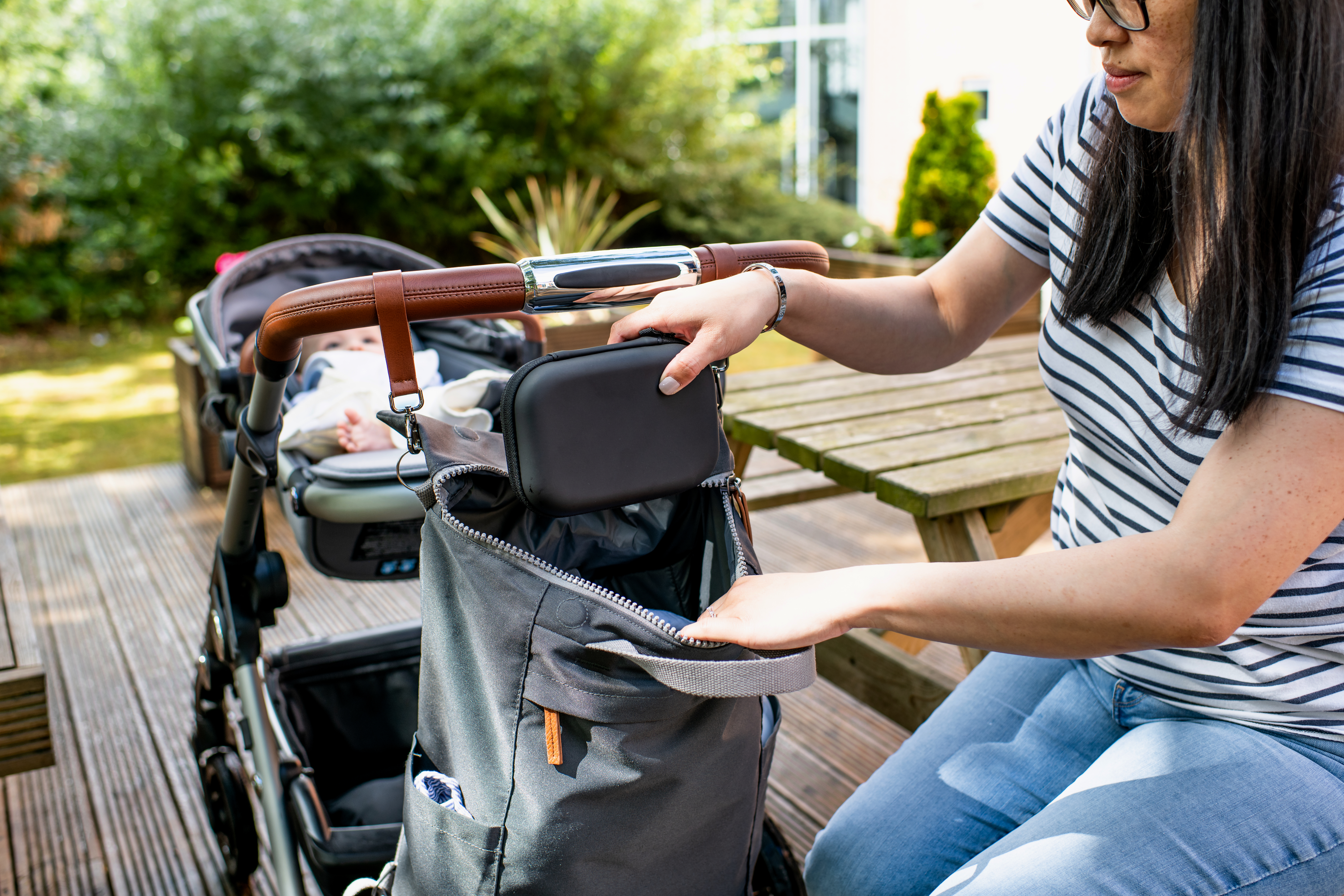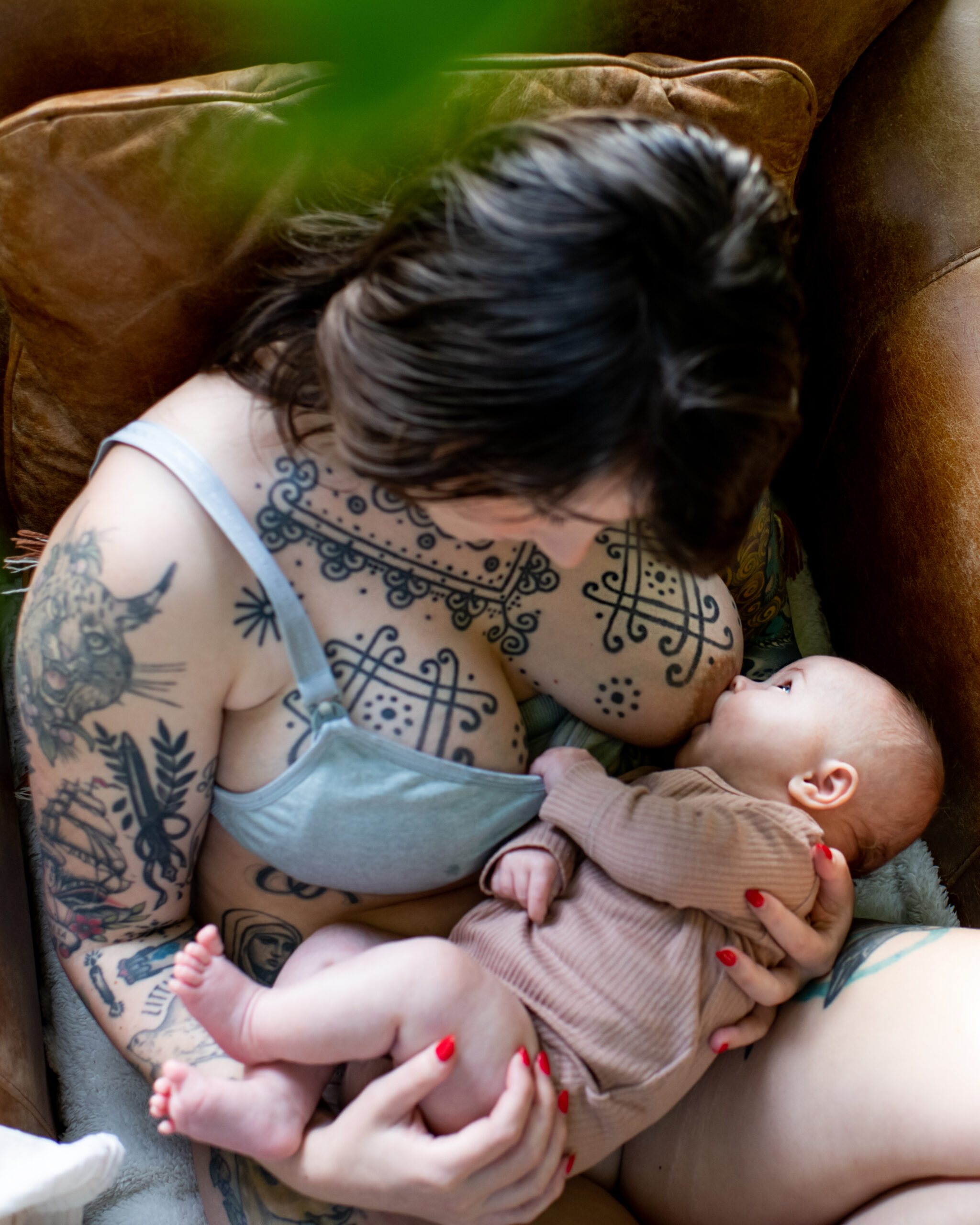Hazy newborn bottle or breastfeeds during the night can be physically and mentally draining in the early weeks and months of parenthood. You may feel like you’re the only person awake!
But the truth is, you’re not alone! It’s normal for a baby to wake during the night to feed or seek comfort from you. There are some techniques you can use to make sleepy night feeds a little easier.
To help you cope with sleep-deprived night feeds, let’s run through how often a newborn should feed during the night. We’ll also discuss if you should wake a newborn baby to feed during the night and cover how to wean your baby off nighttime feeds when they’re ready to sleep for longer stretches.
Newborn night feeds: How often to feed a newborn at night
A newborn baby’s stomach is very small, so they need to wake every couple of hours to feed during the night in their early weeks and months. They will typically feed around eight to 12 times every 24 hours.
You’ll know when your baby is hungry and needs a feed during the night by looking out for their hunger cues. These include sucking on their fingers, turning their head, opening their mouth, being restless, and making murmuring sounds. Crying is the last hunger cue that a baby will give you, so it’s best to feed your little one before they get to the point of crying.
Many parents notice that their baby goes through times when their appetite fluctuates and they want to feed more or less frequently during the night, especially in the first year. This is normal and can be caused by things like growth spurts and teething, or learning new skills such as sitting, crawling and walking.
As they grow, they’ll wake less often during the night to be fed, until they’re eventually able to sleep through the night without a feed.
Night-time bottle feeding
Bottle-fed babies tend to feed every three or four hours. If you’re bottle feeding, you should never try to force your baby to take more milk than they need during the day or night. Doing so won’t help them sleep for longer and can cause colic and distress.
Night-time breastfeeding
Breastfed babies feed around every two to three hours. If you’re breastfeeding, you can offer your baby your breast – even if they’ve just fed – to help settle them back to sleep. Breastfed babies find suckling comforting and there’s no risk of overfeeding a breastfed baby.
Should I wake my newborn to feed at night?
Newborn babies will usually wake themselves up for a feed during the night when they’re hungry.
You shouldn’t need to worry about waking them for a feed unless they sleep for longer stretches and go up to five or six hours without a feed. If this is the case, gently wake them for a feed every three to four hours until they show healthy weight gain.
If you’re unsure about waking your baby during the night for a feed or are concerned about your little one’s feeding patterns or weight gain, don’t hesitate to speak to your doctor or health visitor for advice.
Top tips for newborn night feeds
Whether you’re bottle feeding or breastfeeding your newborn during the night, or waking up to express breast milk, these tips are here to help you cope with night feeds.
Avoid overstimulating baby
If you can, it’s a good idea to keep your little one’s bedtime routine and night feeds as calm as possible.
Try to use a night light and keep noise to a minimum. You can also use a sleep aid to play some soothing sounds or white noise to help settle them back to sleep when they’ve been fed. Once they’re back asleep, maintain the subtle lighting and soft sounds.
Prepare ahead of time
It’s a good idea to gather everything you’ll need for your night-time feeds in one neat and convenient place. That way, when your baby is hungry and ready to feed, you’re not searching in the dark for nappies, a dummy, or a muslin cloth.
Try to keep your nappy-changing area well-stocked. If you can, change your little one’s nappy before you feed them so that you don’t wake them up too much afterwards. Remember that you only need to change them if they’ve done a poo, or their nappy is very wet and uncomfortable.
Keep baby close and stay safe during the night
For the first six months, the safest place for your sleeping baby is in a cot or Moses basket. This should be in the same room as you. Keeping your little one close during the night is not only safe, convenient, and comforting for you both, but it also makes it easier for you to spot their early hunger cues.
Make sure you have somewhere comfortable to sit while you feed your baby, but don’t doze off with your baby on the sofa or an armchair. If you choose to feed your baby while lying in bed, never leave them alone in your bed and be sure to:
- Keep them away from cushions and pillows.
- Make sure they can’t fall out of bed or become trapped between the mattress and the wall.
- Make sure the bedclothes can’t cover their face or head.
Do it together
Feeding your little one during the night while the world around you are sound asleep can be emotionally and physically draining. So, it’s important to seek support and share the load if you can.
Whether it’s splitting feeding duties, asking your partner to burp the baby once the feed’s done, or setting up a group chat so you can talk to other parents who are also up at two in the morning, you don’t need to do it alone!
Don’t watch the clock
Although easier said than done, it’s a good idea to avoid clock-watching during the night.
If you’re constantly keeping one eye on the time, it’ll be a lot harder for you to fall back to sleep after a feed. Instead of watching the seconds tick by until the morning, try to enjoy the precious bonding time that night feeds provide.
Rest when you can
We know that it’s not always possible to sleep when your baby sleeps during the day, but it’s a good idea to rest and recharge as much as you can. This will help curb the exhaustion that can come with night-time feeds.
Every baby is different.
Although sharing your night feed highs and lows with other parents can be comforting, you shouldn’t compare your journey to someone else’s. All babies are different and there’s no one ‘perfect’ way to raise a little one!
Remember that it’s not forever.
Although it may feel like you’re never going to be free from night feed exhaustion, there will come a time when you’ll look back on night feeds and they’ll feel like a distant memory. It’s all part of raising a baby, so try to embrace it!
How and when to wean baby off night feeds
You should take night feed weaning at your own pace. There’s no hurry to phase out your baby’s nighttime feeds, so focus on what feels comfortable for you and your baby. Before you decide to gradually stop night feeds, it’s a good idea to talk with your family doctor to get their professional advice.
Once you’ve decided that the time is right for you to transition away from night feeds, you can gradually reduce the amount of milk offered and the number of times you feed your baby during the night. Scheduling in a final dream feed just before you go to bed yourself can also help.
Night-time breastmilk weaning
If you’re breastfeeding or giving your little one expressed breast milk in a bottle, you can think about night feed weaning from 12 months of age. Once you decide that night feed weaning is right for you, you can rest assured that your little one will still get all the benefits of your breast milk during daytime feeds.
By the time they reach the age of one, your little one will be getting enough food during the day to support their growth and development. But before their first birthday, your breast milk supply might be negatively impacted if you stop night feeds and expressing.
Night-time formula weaning
If your little one is formula-fed, you can consider phasing out their nighttime feeds from around six months. Formula is digested slower than breastmilk, so if your baby is formula fed and older than six months, they’re unlikely to be waking at night because they’re hungry.


